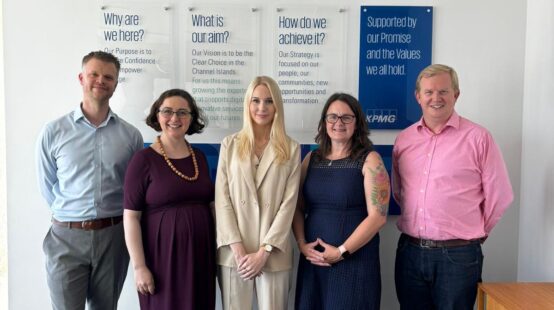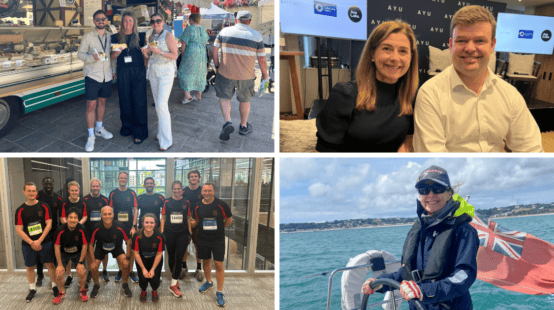I recently attended a talk from Ben Hammersley, futurologist, writer and board member of Digital Jersey. He began by pointing out that technology is physical; apparently 90% of people that have had a smart phone for at least 1 year will feel it vibrate in their pocket when it has not. 45% of people that have had a phone in the last year will feel it vibrate in their pocket when they are holding it in their hand. This is called Disassociated Phantom Vibration, which I did not know it existed until I listened to this talk from Ben and I have to own up to being one of the 45%! Ben had some other really interesting points about the adoption of technology, not just the physical manifestation as described above, but also the cultural embodiment it creates, sounds surreal at first but its not.
Here is a summary of what he went on to say:
There is a lot of talk these days about doing just one thing and not multitasking, but we are predisposed to continuous partial attention. People are constantly distracted, focused on many things at once; we evolved to concentrate on many things, for example there is no point focusing on starting a fire if a tiger was to come along and eat you. So concentration on one thing is a ‘bad thing’? Moreover people will do almost anything not to be left alone with their thoughts. In a test of 100 people into a blank plain room, with only a button in the middle, the people were asked to place a finger on the button, which gave them a shock and it hurt. All that people were asked to do was be alone for fifteen minutes, that was the experiment, sit there and do nothing. And yet 66% gave themselves an electric shock, they could not deal with being alone, happily giving themselves a painful shock than be alone with their thoughts. So it turns out we are not good at doing this, Zen monks can do it, but they have to train for years, their job is to sit still and meditate and even they have to practice at it.
So, as we use technologies in today’s society we are now doing knowledge work; transforming things with our mind rather than with physical action. However, the way in which we do this is also cultural, not only does technology affect the way we do work as a tool, the technology effects our culture, it works both ways. Researchers have realised; if we want to understand what is happening, we have to understand not just the technology, but also the effect it has. It has become clear that any technology can be described as the realisation of a cultural or political belief. Looking at the Blackberry for example; once you were issued with one (usually by your boss) it was a status symbol. It is not just a device, not just a gadget; it is a political belief; that email is the most important thing in the universe. When the light blinks you must answer the email, it does not matter if you are reading a bedtime story to your child, email is your master. Therefore it is really important to think about the impact before you take on a new piece of technology. Every new piece of tech has a new cultural embodiment, for example Facebook, a very useful tool for communication and a reminder of friends’ birthdays. Zuckerberg believes privacy is evil and the human race is better off if we share all of our data. He believes that the world’s data can then be mined to provide solutions to massive social problems. Google have the same opinion, they want to host medical records, and I think they could do it well, but Eric Schmit wants to use the information in ways you can only do on a massive scale. They argue privacy is bad for humans as shared information can be used to the benefit of human kind. The trouble is that mining large amounts of even anonymous data means that you can actually obtain enough information to zero back in on the people that have contributed.
The vast majority of technology through the digital age is based around the Californian ideology, which when summed up, says if we can disrupt it, we should, especially if the economics suggest we can make lots of money doing so. However, what might work for the United States might not work at all for Europe. An example of this is the Uber taxi cab app.
The legend of Silicon Valley is that it was created from nothing, however this is simply not true. Silicon Valley was created from massive government subsidies over about 40 years, which included the space race, the cold war and the arms race against Russia. Only after that did the dot com people stand on top and declare they were the ones who created Silicon Valley.
Another designer technology concept is smart cities. This is where you fill a city full of sensors, which monitor the busses, cars, temperature and all elements of the city provide the information to the people so they can optimise their lives. The thing is, the software is written by only a handful of companies and so it is tuned to those companies’ cultural beliefs that often do not translate to the people.
In Horsens, Denmark for example there are 250,000 people, it is an old Viking town and a beautiful place with a university and lots of beautiful people, all on bicycles, they also have the greatest number of pavement cafés in Europe. When IBM installed their smart city software it was set to the default from North America, which asks ‘how do I get from A to B as fast as possible by car’. If you live in a city where you cycle everywhere and there are lots of cafés where you can sit in dappled sunlight and watch the beautiful people go by whilst having great conversation with a stranger and eating freshly baked cake, an optimised commute North American style may not be appropriate. The culture of IBM’s North American system is completely different to that of the people living in Horsens, Denmark.
So what should we do here in Jersey and why are we better off being us than becoming Silicon Valley? Firstly we need to decide what it means to be Jersey. We need the whole community to work together and define what makes Jersey a cool place to live now and how we want to live in the future. Now is the time to bring in new cultures, adapt them to incorporate the parts of our existing culture we wish to preserve, and create a whole new culture that suits the way we live. We have the opportunity now to build ‘cool stuff’ and make Jersey a very cool place to live for the next 20 years.



